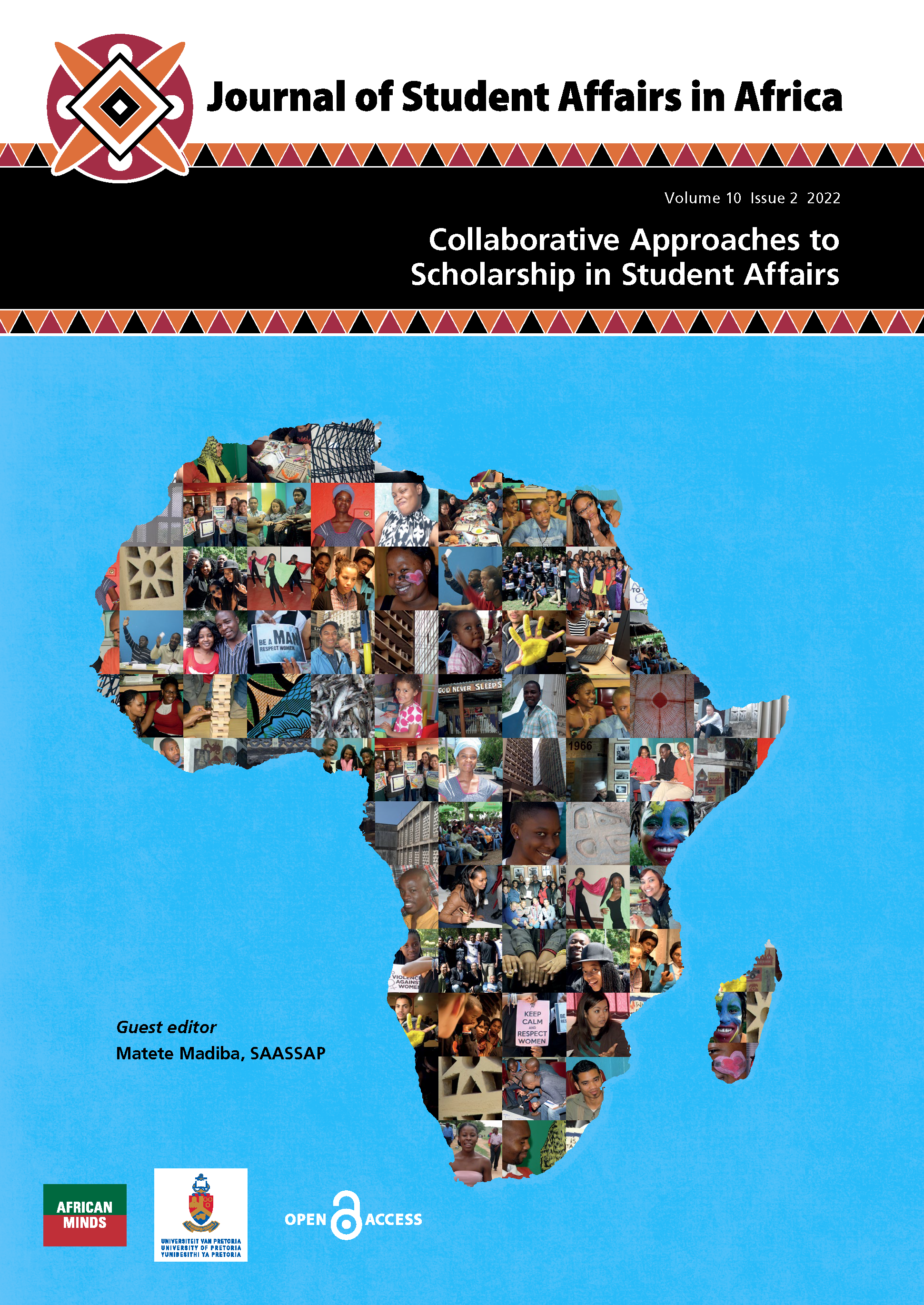Campus Mental Health Revisited
DOI:
https://doi.org/10.24085/jsaa.v10i2.4368Abstract
This conceptual, reflective article explores recent innovations in mental health service provision at a large urban, residential university in South Africa during the COVID-19 pandemic. Prior to the pandemic, mental health services at this university were generally offered through face-to-face consultations, with secondary offerings in the form of well-being workshops at student residences and faculty houses. The need for mental health support was acute during the pandemic, placing great pressure on service provision. At the same time, however, everyone – that is, all staff and students – were working remotely as campuses had been closed under national lockdown. In this context, it was necessary to connect students to mental health services while they were studying remotely during the various phases of lockdown and to revisit the conventional and possibly largely reactive model of mental health service provision. Innovation in the promotion and provision of mental health services and products at this university, including through corporate partnerships and the responsible use of automation and technology, helped to achieve market penetration and widespread utilisation of services. In addition, ethical considerations; the factors inhibiting and supporting change; and the sustainability of the efforts undertaken during this period had to be addressed. Drawing lessons from the experience at this university, it is recommended that, while there will always be a place for conventional mental health service offerings, it may be time to expand the model permanently on modern campus environments, where there is a need for a caring community; committed leadership; the development of resilience in the student body; and the building of personal strengths in individuals.
Additional Files
Published
Issue
Section
License
Copyright (c) 2022 Hanlé Kirkcaldy

This work is licensed under a Creative Commons Attribution-NonCommercial-ShareAlike 4.0 International License.
Authors who publish with this journal agree to the following terms:
Authors retain copyright and grant the journal right of first publication with the work simultaneously licensed under the Creative Commons Attribution Share-alike 4.0 International License that allows others to share the work with an acknowledgement of the work's authorship and initial publication in this journal.
Authors are able to enter into separate, additional contractual arrangements for the non-exclusive distribution of the journal's published version of the work (e.g., post it to an institutional repository or publish it in a book), with an acknowledgement of its initial publication in this journal.
Authors are permitted and encouraged to post their work online (e.g., in institutional repositories or on their website) prior to and during the submission process, as it can lead to productive exchanges, as well as earlier and greater citation of published work (See: The Effect of Open Access).


